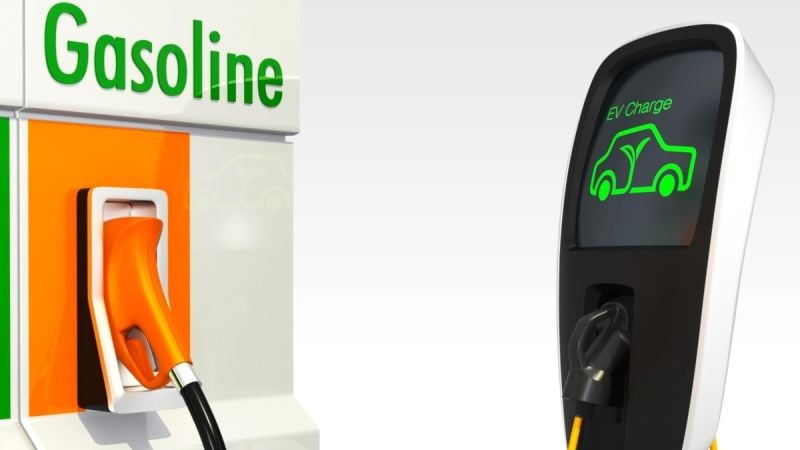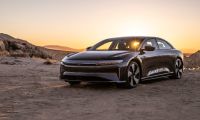In previous articles, we've discussed the hidden costs many first-time EV owners learn about the hard way when they discover that buying that EV model might not have been such a great money-saving decision after all.
However, that was then, and now is now, and things have changed. Or has it?!
Owning an EV Today
Suppose you are wondering more about the personal cost of owning an EV. In that case, a recent Car Help Corner YouTube channel episode reveals the most recent reasons why owning an EV does not necessarily mean that you will see significant savings overall compared to buying an internal combustion engine (ICE) vehicle―at least not immediately.
"It is widely accepted that electric cars can save you money in certain ways over the equivalent gas-powered cars. But there are also a number of significant costs that many consumers might not think of or might not even be aware of that make owning an electric car a lot more expensive than you might think. And I am going to break down every single one of those costs in this video," states the host of the video.
So, what are some of the costs of owning an EV you can expect that might not be obvious while shopping at a dealership? Find out in the video posted below.
However, if you do not have the time or just want a quick look at the reasons, a summary of those hidden EV costs gleaned from the video is provided below the video for your convenience.
EXPOSED! The Hidden Costs Of Electric Cars No One Is Telling You About Update
HIDDEN EV COST SUMMARY
- The Cost of Charging: Depending on where you live, the fuel cost savings for an EV can be anywhere from 50-90 percent less than what you would pay for an ICE vehicle. However, if you depend on primarily using public charging rather than at home, those savings significantly dwindle to the point of breaking even in fuel cost.
- The Cost of Buying and Installing an EV Charger: Charging your EV at a home outlet is prohibitively slow, meaning you must have an EV charger installed to avoid the inconvenience of waiting forever for it to charge. The hidden cost, however, is not so much the price of an EV charger and having it installed. Rather, it is the added cost of hiring an electrician to install an upgraded electrical panel, which can easily add anywhere between $2,000 and $5,000, depending on your home's electrical system.
- Out-of-Warranty Maintenance and Repairs: While less is spent on EV maintenance compared to ICE vehicles, due to their added weight from the EV battery and increased torque from the motors, EV tires wear out remarkably fast meaning new tire replacement more often than you were used to with your ICE vehicle. When it comes to repairs, you can expect repairs on your EV not found in ICE vehicles that can prove to be expensive and even difficult to find a garage or service center trained to do the repair. Once past the EV warranty period, you may find repairs exceed those of an ICE vehicle.
Related article: Everything You Need to Know About Electric Car Tires to Avoid Being Scammed
Related article: A Collapsible Spare Tire Solution for EVs Without Spare Tires
4. The Cost of the EV Battery: If the EV battery has to be replaced, expect to pay anywhere between $10,000 and $50,000. This was a real problem for older EV models. However, newer models with improved battery life are expected to last 10-15 years before needing replacement unless road damage or some other accident damages the battery.
5. Insurance: EVs typically have higher insurance premiums than ICE vehicles. While this depends on multiple factors such as model, region, and background check, it is a consideration if you are choosing an EV solely to save money. If you have an accident with your EV, expect a significant increase in your premium payments.
6. Depreciation: ICE vehicles and EVs are not an investment. However, a hidden cost many owners do not realize until too late is that the depreciation of an EV is much faster than it is with most ICE vehicles―which can be as much as 50% in the first year of ownership.
Does This Mean I Should Not Buy an EV?
A final piece of advice from the video is that despite these barriers to saving money on an EV, the costs have improved over the years and are expected to improve further. But for now, the recommended advice is that you can avoid most of these hidden costs by leasing an EV instead of buying one. Or go hybrid instead, which has proven to be the best option between ICE and EV ownership.
For additional EV-related articles, be sure to check out these selected two:
- The Dark Secret Behind EV Maintenance Says This Mechanic
- The Hidden Environmental and Economic Costs of Electric Vehicles
- 4 New Tesla Batteries Expected, Announcement
Timothy Boyer, an automotive reporter based in Cincinnati, researches and works on restoring older vehicles with engine modifications for improved performance. He also reports on modern cars (including EVs), focusing on DIY mechanics, buying and using tools, and other related topical automotive news. Follow Tim on Twitter at @TimBoyerWrites for daily news and topics related to new and used vehicles, as well as on Facebook and his automotive blog, “Zen and the Art of DIY Car Repair.”
COMING UP NEXT: "Body of Car Fell Through Jack" ―Don't Make This Common DIY Mistake, Warning
Image Source: Deposit Photos
Set Torque News as Preferred Source on Google












Comments
What an ignorant article. …
Permalink
What an ignorant article. I race an AMG and I am saying this. I even removed the cats and daily the car. Just amazingly ignorant. Probably doesn't understand he is bias and grasping at straws. If you drive a lot, you save your entire gas expence such that it covers your car payment. I don't even want one because it requires a degree in electrical engineering to modify which is the part of cars I like. Wow, and he wonders why as a writer he is stuck in a substandard car website job.
A lot of the listed reasons…
Permalink
A lot of the listed reasons should be replaced with "it depends" We have two EV's that are quite new. Anything that deals with longevity I can't vouch for. But, a few things I can vouch for.
Cost of installing Level 2 charging at home is not expensive as long as your electrical panel is rated for 100 Amps and you have unused breaker spots. We were good for both conditions. The cars usually come with 120 or 240 volt charger units. We have two different models and use one of the chargers for both cars (they are not brand specific). Cost to install a 240 V 50 A outlet: $260 for us.
Insurance was about the same as for the two EV's as it was for the two cars they were replacing - older model with lots of miles.
Cost of charging appears to be about $60/month for both cars (as a comparison, it was about the same as a portable hot tub we had last year and stopped using). The two cars are driven about 1800 miles per month combined. You do the math for equivalent gas cost and its easy to see charging on EV at home is way cheaper. That said, high speed (Level 3) charging you would use on trips is expensive. We have another vehicle for trips, so I don't expect to use high speed charging more than a couple of times a year.
Depreciation? Definitely true. But that's why we were able to buy a "used" 2023 Subaru Solterra with 7000 miles on it for $20,000 less than original sticker. Used EV deals are usually good with depreciation already removed.
The battery life part is a question mark. A lot of anecdotal comments of older Tesla owners seems to suggest the batteries could last 200,000-300,000 miles. One Tesla owner in Germany is on his 4th set, but he has 1.2 million (!) miles on his Tesla S. Where is he driving?
This isn't cost related but it should be noted: EVs are damn fun to drive. The punch of acceleration when getting on the freeway is amazing.
EVs aren't for anyone traveling long distances, haul things, tow rigs, and other special things. We aren't there yet. Give it five years and I would bet it will be the vehicle of choice.